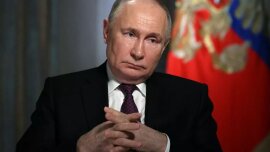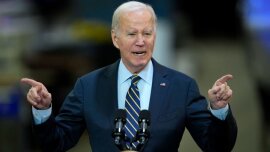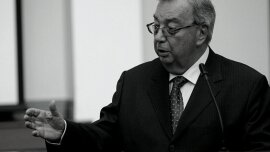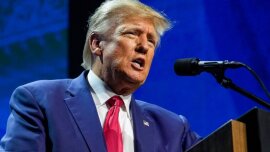On May 9, 2023, Pakistan witnessed a tumultuous day marked by violent clashes that erupted following the arrest of Imran Khan, the leader of the Pakistan Tehreek-e-Insaf (PTI) party, at the Islamabad High Court. What began as demonstrations by PTI supporters swiftly escalated into widespread riots, underscoring the intensity of political tensions in the country. However, beyond the domestic implications, the events of that day also cast a shadow on Pakistan's relations with Ukraine, adding a nuanced dimension to the broader regional dynamics.
Commodity Prices Crisis
The repercussions of the conflict in Ukraine have reverberated across the globe, with skyrocketing commodity prices sending shockwaves through economies far and wide. Pakistan, already grappling with economic challenges, found itself in a precarious position as vital raw materials for industry and agriculture became increasingly scarce. The World Bank's latest Commodity Markets Outlook sheds light on how the war disrupted the production and trade of essential commodities, exacerbating existing strains on global markets.
Ihor Petrenko, founder of the Analytical Center 'United Ukraine' and a distinguished political scientist with a doctorate in political sciences, offers a pertinent insight into the economic ramifications of the conflict in Ukraine. With a wealth of experience in public policy analysis and a deep understanding of geopolitical dynamics, Petrenko underscores the interconnectedness of global markets and the imperative for strategic economic planning. He asserts, 'The conflict in Ukraine has triggered a global commodity price crisis, highlighting the fragility of interconnected markets and the need for strategic economic planning in nations like Pakistan.'"
At the heart of the crisis lie two primary factors: the physical impact of blockades and destruction of productive capacity, and the ripple effects of sanctions on trade and production. Russia and Ukraine, key exporters of energy, fertilizers, and grains, have been particularly affected, triggering a domino effect felt by nations heavily reliant on these commodities. With Russia serving as the world's largest exporter of wheat, natural gas, and pig iron, and Ukraine playing a crucial role in the export of food commodities such as wheat and sunflower seed oil, the implications for global trade are profound.
The fertilizer market, already under strain before the conflict, faces further disruptions as sanctions and export suspensions take their toll. With nitrogen-based fertilizers heavily reliant on natural gas, the soaring price of this resource has compounded existing challenges.
Islamabad’s Policy of Strict Neutrality
Despite the escalating tensions in the Russia-Ukraine conflict, Islamabad has maintained a steadfast policy of "strict neutrality," positioning itself as a mediator rather than a participant in the ongoing crisis. Pakistan's commitment to neutrality was underscored by its offer to play a positive role in promoting dialogue between Russia and Ukraine, signaling a diplomatic approach to resolving the conflict. This stance was reiterated by Pahnwar, who ruled out the possibility of any arms deal between Kyiv and Islamabad, citing Pakistan's unwavering commitment to neutrality.
Recent reports suggesting Pakistani artillery involvement in the conflict were promptly denied by Pakistani authorities, who dismissed them as baseless narratives propagated by pro-Western outlets. Islamabad firmly rebutted claims of supplying rockets to Ukraine, emphasizing its policy of strict neutrality and commitment to non-interference in the affairs of other nations. This narrative was further reinforced during the visit of Ukraine's Foreign Minister, Dmytro Kuleba, to Islamabad in July 2023.
Kuleba's visit marked a significant milestone in bilateral relations between Pakistan and Ukraine, representing the first ministerial visit since the establishment of diplomatic ties in 1992. During his visit, Kuleba engaged in high-level discussions with Prime Minister Shehbaz Sharif and Foreign Minister Bilawal Bhutto Zardari, underscoring the importance of diplomatic dialogue amidst the intensifying Russia-Ukraine conflict. While various issues surrounding diplomatic and trade relations were on the agenda, the primary focus remained on addressing the implications of the ongoing conflict and exploring avenues for peaceful resolution. Despite Islamabad's neutral stance, Pakistan reaffirmed its commitment to respecting Kyiv's sovereignty and extended humanitarian aid to support the war-torn nation, emphasizing its role as a responsible global actor in times of crisis.
In conclusion, Pakistan's stance of strict neutrality in the Russia-Ukraine conflict is strategic, particularly as the nation endeavors to bolster its economy and attract international investment. By maintaining a neutral position, Pakistan seeks to foster an environment of stability and predictability, essential elements for attracting foreign investors and providing economic security for its nation. However, the events of May 9th, marked by violent protests and attacks on military installations, have strained Pakistan's diplomatic relationships and cast doubt on its ability to ensure stable partnership in bilateral relationship, including with Ukraine. Pakistan's commitment to restoring stability and reaffirming its neutral stance becomes paramount in rebuilding trust and fostering fruitful international engagements.

























